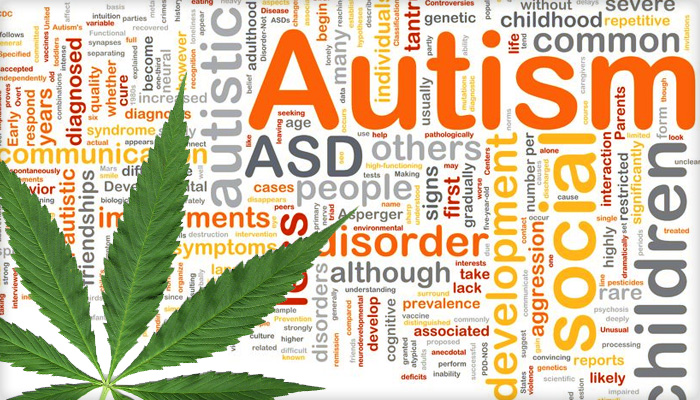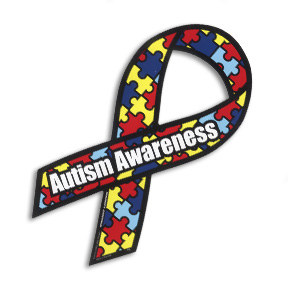
Medical Marijuana in the Management of Autism
As autism becomes more prevalent in the United States, there is a growing need for alternative treatments. Currently prescribed drugs simply do not work for some, and more parents have been turning to medical marijuana to ease their children’s symptoms. While no double-blind study has been done on the effect of marijuana and autism, UC Irvine (UCI) is dedicated to studying the disorder.
Medical Marijuana Gaining Popularity Among Autistic Patients
With funding from the William & Nancy Thompson Family Foundation and the Children & Families Commission of Orange County, UCI created the Center for Autism & Neurodevelopmental Disorders of Southern California. The center is devoted to providing autism patients with unmatched care including full assessment & diagnosis, care coordination, family education & support, and research to find new treatments.
One drug discovery effort in particular has found that “increasing the brain’s natural marijuana-like chemicals may regulate these interrupted neural flows, correcting behavioral issues related to autism.”
Doctors at UC Irvine stress the importance of searching for new treatments, given the limited options currently available. One of these professors, Dr. J. Jay Gargus, is the leader of the Center for Autism Research & Treatment (CART) at UCI. CART was set up to specifically handle research to develop an effective pharmaceutical therapy for the core symptoms of autism. The center focuses their studies on the genetic basis of autism, and believes that a single gene causing mutations in neural pathways (i.e. communication pathways between neurons [specialized cells of the nervous system] that result in thinking, memory, movement, etc.) is what causes the disorder. They think that by determining what is causing these defective genes to affect the brain’s pathways, they will be able to design or repurpose existing drugs to stabilize the flow of signals. Daniele Piomelli of UCI, and Oliver Manzoni of INSERM (French national research agency) are leading a study that could lead to finding treatments for individuals who suffer from autism.
The endocannabinoid system works to regulate and modulate almost all of the neurotransmitters in your entire body. This group of receptors and their transmitters (endocannabinoids) are involved in most functions of your body including appetite, mood, pain-sensation, thought, memory, and much more. Piomelli and Manzoni have discovered that people with Fragile X syndrome (the most common known genetic cause of autism) have a limited amount of a natural endocannabinoid transmitter compound called 2-AG, which is found naturally in the human brain. This compound is crucial for efficient transport of neural signals to receptors, and affects basic motor/movement skills like walking and talking.
Cannabis Used to Treat Symptoms of Autism
While the researchers are not supporting the use of cannabis by autism patients, they do recognize the fact that these naturally occurring cannabinoid compounds can be found in many varieties of cannabis. They believe that cannabis may help ease the symptoms experienced by children with autism and other behavioral disorders. The compounds in the plant can help block the enzymes that are affecting the 2-AG endocannabinoid, restoring a natural flow of communication between the brain and receptors.
Some parents such as Marie Myung-Ok Lee have taken it upon themselves to give their children medical marijuana to treat the symptoms of autism. Marie is a professor at Brown University, is an award-winning novelist and essayist, and a mother to an autistic child, “J”. J not only suffers from the symptoms of autism, but also from the chronic pain caused by two major surgeries to remove a spinal cord tumor, as well as an inflammatory bowel condition. J was suffering in school because of his temper tantrums, which included biting and hitting.
“Risperdal & five other anti-psychotic drugs were responsible for 45 deaths between 2000 and 2004 according to USA Today’s review of FDA data. As you would expect, marijuana-related deaths totaled zero.”
Although he was being treated with anti-inflammatory medications to ease his pain, they stopped being effective after a year’s time. This meant that the only other option for J was an antipsychotic medication such as Risperdal, which is typically prescribed to treat bipolar disorder, ADHD, autism, and other behavioral disorders. However, the drug has never been tested for long-term effects in children, and is known for its harmful side effects. Risperdal, alongside five other popular antipsychotic drugs, were responsible for 45 deaths between 2000 and 2004 according to USA Today’s review of FDA data. Neither Marie, nor J’s doctor supported the use of these dangerous antipsychotic drugs.
Marie was determined to find an alternative medicine for her son, when she stumbled across a blogger suggesting medical marijuana to treat autism. She recognized the fact that the safe plant has been known to be an effective analgesic and anxiety modulator, with no (known) permanent side effects. J’s doctor experimented with giving him Marinol, a synthetic form of THC. Although the pill helped tremendously, J built up a tolerance to the synthetic within months. Upset with J’s aggressive behavior returning, Marie turned to a medical marijuana advocacy group on the Brown campus for answers. She attended their meeting in which she was told that Marinol couldn’t compare to the actual plant (marijuana), which has approximately 80 cannabinoids compared to Marinol’s one.

“[Marijuana is a] wonderful, safe botanical that allows J to participate more fully in life without the dangers and sometimes permanent side effects of pharmaceutical drugs.” – Marie Myung-Ok Lee
The prescription for J’s Marinol was varied constantly with no procedure to follow, merely hoping for the best. Marie decided to apply J to the Rhode Island Medical Marijuana Program with the approval of his doctor. Shortly after he was accepted and licensed, becoming the state’s youngest member. The family was introduced to a local horticulture specialist who was also a licensed caregiver. He provided them with marijuana tea, a glycerine tincture, a marijuana distillate in olive oil, and some cannabis infused cookies.
After just one cookie following dinner, J went to bed. He quickly fell into a peaceful sleep, which was a large improvement from his usual restless nights. Although J got tired of the cookies, his tea seemed to be working wonders. While Marie doesn’t consider marijuana a miracle cure for J’s autism, she does consider it a, “wonderful, safe botanical that allows J to participate more fully in life without the dangers and sometimes permanent side effects of pharmaceutical drugs.”
To date, Marie and her husband have been treating their son with medical marijuana for two years now. They have determined the strain that works the best for J, White Russian (known for extreme pain relief), and a set dosage that she has figured out works best for her son. They use an extract of the strain in a dropper to provide J with a precise dosage every time. A friend of the family said that she’d never seen J (or the family) so happy.
A Controversial Subject That Needs Explored
While the autism community continues to debate the subject, there seems to be a growing number of parents who are willing to explore alternative medications like medical cannabis. As Marie perfectly states in her four part chronicles, “as a parent with a child in such obvious distress, it’s tough to wait for a consensus that might never come.” I think most parents can sympathize with the fact that Marie and her husband are just trying to help their child in any way they can.